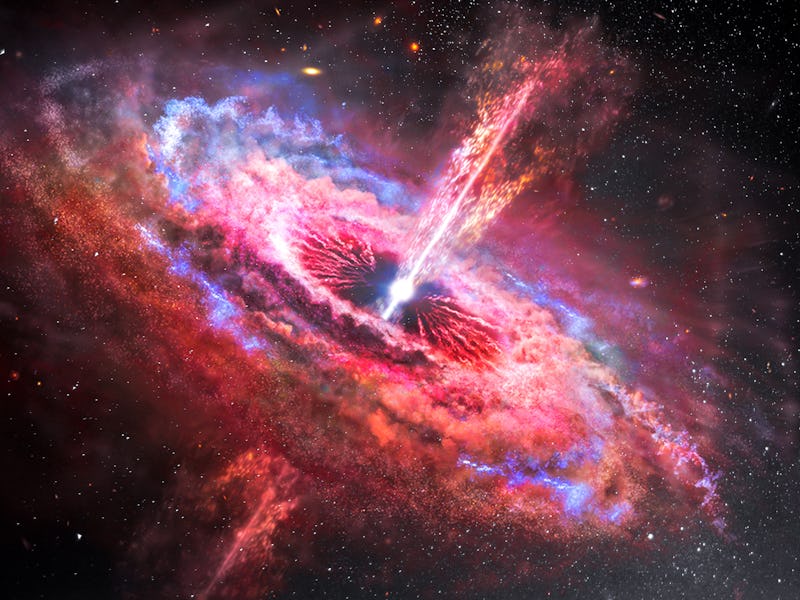Ancient black holes: New research reveals a surprising truth
Is there anything out there?

The tumultuous era of the big bang may have been chaotic enough to flood the universe with primordial black holes. Eventually, some of those black holes will find each other and merge, sending out ripples of gravitational waves.
A comprehensive search for those gravitational wave signatures hasn’t found anything, putting tight constraints on the abundance of these mysterious objects.
The concept of primordial black holes has waxed and waned in scientific circles over the decades. At first, it was a fascinating possibility. After all, the first few seconds of the big bang were pretty heady times, and there may have been large enough differences in density to generate black holes of all sorts of sizes, from microscopic to gigantic. But repeated observations have continually been unable to come up with any conclusive evidence for their existence.
And then there’s dark matter, the mysterious substance that makes up the vast bulk of matter in the cosmos. Scientists aren’t exactly sure what lies behind dark matter, and primordial black holes are a tantalizing possibility.
But if the universe is flooded with innumerable small black holes, eventually some of those black holes will find each other and merge. And our gravitational wave observatories should be sensitive enough to detect the resulting ripples in spacetime.
A team of astronomers did just that, combing through the combined LIGO and VIRGO data for any hidden, subtle detections of primordial black hole collisions.
They found nothing.
Based on their lack of results, they estimate that primordial black holes smaller than the sun merge no more often than a few hundred to a few thousand times every year…in a volume of the universe almost four billion light-years on a side. That’s a lot of volume, which means that the primordial black hole mergers are orders of magnitude more rare than stellar mergers.
To put this into terms of mass, the new observations limit primordial black holes to be responsible for no more than six percent of all the dark matter in the universe.
If they even exist.
This article was originally published on Universe Today by Paul M. Sutter. Read the original article here.